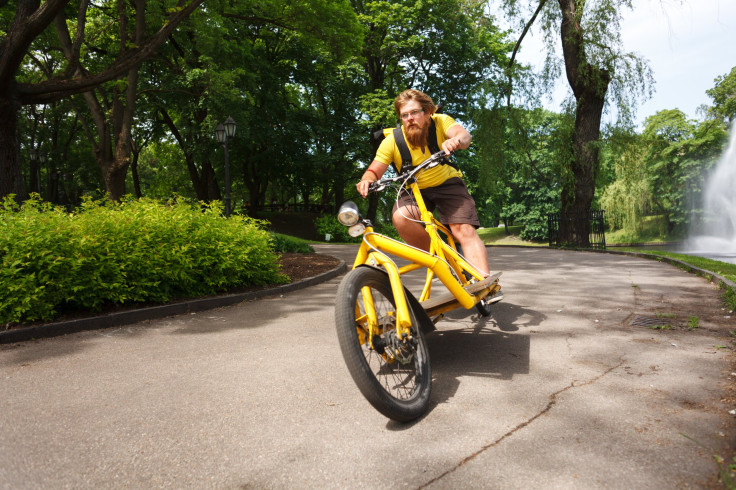Medical Marijuana Delivery Service In San Francisco Guarantees Quick Response

A new app from Yammer co-founder Keith McCarty promises the rapid delivery of medical marijuana to residents of San Francisco in about 10 minutes: Your move, Brooklyn.
With financial windfall from his social media success, the Silicon Valley technologist on Tuesday launched a medical marijuana delivery service through his startup company Eaze, which verifies patient eligibility electronically by tablet and smartphone. After placing an order, patients may track the delivery in real-time as a “caregiver” hand-delivers the marijuana from a medical dispensary.
McCarty says the new app automates “on-demand health care delivery service” has automated the normally “slow, cumbersome, and unpredictable” process of checking dispensary inventory and confirming patient eligibility, according to SFGate. The order comes with no additional delivery charge with driver-caregivers paid from fees collected from the dispensaries. The delivery drivers must pass criminal background checks and must also have medical marijuana permits to allow them to legally carry 8 ounces of product.
"We want them to be able to relate to the patients," McCarty said, adding that drivers wouldn’t be operating under the influence of marijuana while working."We don't have a protocol yet, but plan to do it," he said.
Such delivery services have become popular with patients either too sick to leave home or too poor to afford reliable transportation, according to Justin Hartfield, CEO of WeedMaps in Irvine, Calif. However, customers must still pay with cash given the intricate conflicts between federal and state marijuana law. While the drug remains a Schedule I substance in federal law with no redeeming medicinal value, U.S. law prevents banks from handling credit transactions with the mostly legal marijuana trade.
"Most businesses that handle marijuana, including delivery services and storefront dispensaries, have found it very, very difficult to get a bank account because of federal laws," Chris Walsh, editor of Marijuana Business Daily in Rhode Island, said. "Banks take on huge risks doing business with the industry, although some will do it under the radar."
Presently, companies trading in marijuana operate mostly with cash to prevent possible asset seizures from the federal government, should legal conflict occur on the issue. However, Eaze maneuvers around that legality by charging dispensaries to deliver, rather than selling weed directly to consumers.
Unfortunately, the company has no plans to offer delivery by vintage 1970s 10-speed bicycle.



























